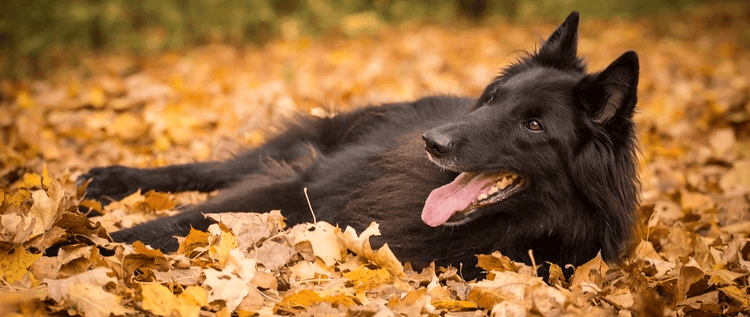
Choosing a Belgian Sheepdog
The Belgian sheepdog is a serious and watchful breed with a strong protective and territorial instinct. This breed excels as a police dog and natural guardian.
History and Origin
Throughout time, Belgians have used various dogs to help them in their herding tasks. Through breeding trial and error, they finally developed a dog that was agile, strong, intelligent and loyal. By 1891, these dogs were known as Belgian shepherds. Since that time, four separate versions of the Belgian shepherd have been developed. They have the same basic body type but with different coats. In Belgium and France these dogs are all registered as Chien de Berger Belge. They are considered one breed with four different varieties. In many other parts of the world, including the United States, each breed is considered separate and distinct. The Belgian sheepdog is one of them.
In addition to the Belgian sheepdog or groenendael (long black coat), the other Belgian sheep herding dogs include the Belgian Malinois (short, smooth coat), the Belgian tervueren (long coat any color but black) and the Belgian laekenois (wire coat). Of these, only the laekenois is not recognized by the American Kennel Club.
The Belgian sheepdog, as with other Belgian shepherds, was developed in Belgium. The particular breed was primarily associated with the city of Groenendael and was developed by Nicholas Rose, a Belgian breeder. This dog was bred to be an intelligent and loyal dog and has been used in search and rescue, police work and as message carriers and ambulance dogs in World War I. Today, the Belgian sheepdog is more often used as a companion dog.
The four Belgian breeds were recognized by the American Kennel Club in 1912 as sheepdogs in the herding group. In 1959, they were recognized by their individual breeds, except the laekenois.
Appearance and Size
The Belgian sheepdog is a well-muscled lean dog with a balanced, square body. The eyes are almond shaped and brown in color. The ears are triangular and erect and the muzzle is tapered but not pointy. The tail of the Belgian sheepdog is long and feathered.
The coat of the Belgian sheepdog is long and straight with a dense undercoat. This breed adapts to extremes in temperature well. The coat color is black and may have a small amount of white.
The adult Belgian sheepdog stands 22 to 26 inches at the shoulder and weighs 60 to 75 pounds.
Personality
The Belgian sheepdog is an intelligent dog with an instinctive protective nature that helps him excel in herding animals and guarding property. Most are affectionate and gentle but some can be shy or aggressive, especially if not adequately socialized as a puppy. The Belgian sheepdog makes an excellent guard dog.
Home and Family Relations
The Belgian sheepdog is an affectionate and loyal family pet that thrives on human companionship and lots of activity. Some can become overly protective of family members and do better in families with older children. As a herding breed, the Belgian sheepdog may try to herd small children during playtime. He can get along with other family pets if raised with them but may chase small pets and some can be dog aggressive. This breed prefers to live in a home with a large yard and an active family but may do okay in an apartment if taken on long frequent walks. But be aware that this is a high energy dog that may become destructive if not allowed frequent exercise.
Training
The Belgian sheepdog is an intelligent breed that needs basic and advanced training as well as early socialization as a young puppy. This breed is naturally confident and assertive and excels in police work and as a guard dog. For this reason, the Belgian sheepdog needs a firm but gentle hand and should not be allowed to dominate family members. This breed is easily taught a variety of tasks and enjoys having a job to do.
Special Care
The Belgian sheepdog needs lots of exercise and training or he may become uncontrollable and destructive. This breed does not like being left alone for long periods and may find unacceptable ways to alleviate his boredom. The Belgian sheepdog needs lots of socialization early in left to prevent behavioral problems such as shyness or aggression.
Common Diseases and Disorders
In general, the Belgian sheepdog is a healthy dog with few medical concerns. However, the following diseases or disorders have been reported:
- Gastric torsion, also known as bloat, is a life-threatening sudden illness associated with the stomach filling with air and twisting.
- Hip dysplasia is a malformation of the hip joint that results in pain, lameness and arthritis.
- Epilepsy is a seizure disorder that develops between the ages of 2 and 5 years.
- Congenital Hypotrichosis – is a congenital disease causing symmetrical hair loss.
- Pannus is a disease of the eye resulting in inflammation.
- Cataracts cause the lens of the eye to loose transparency and can result in blindness.The Belgian sheepdog is also prone to allergies and obesity.\
Life Span
- The life span of the Belgian sheepdog is approximately 12 to 14 years.
- We realize that each dog is unique and may display other characteristics. This profile provides generally accepted breed information only.